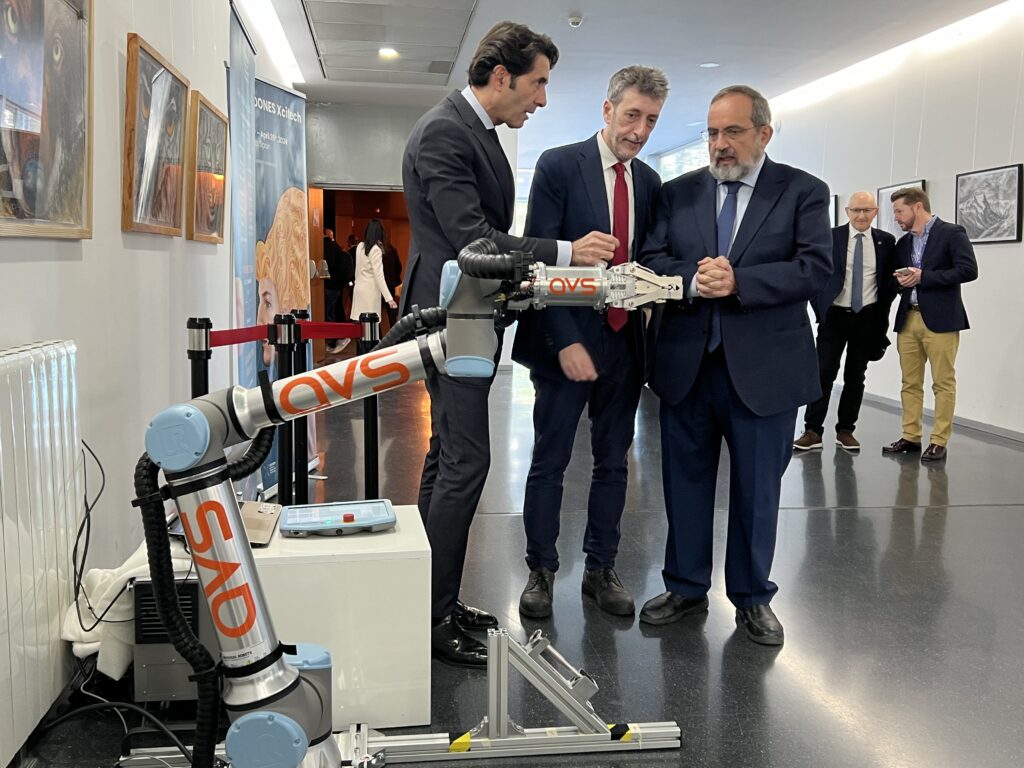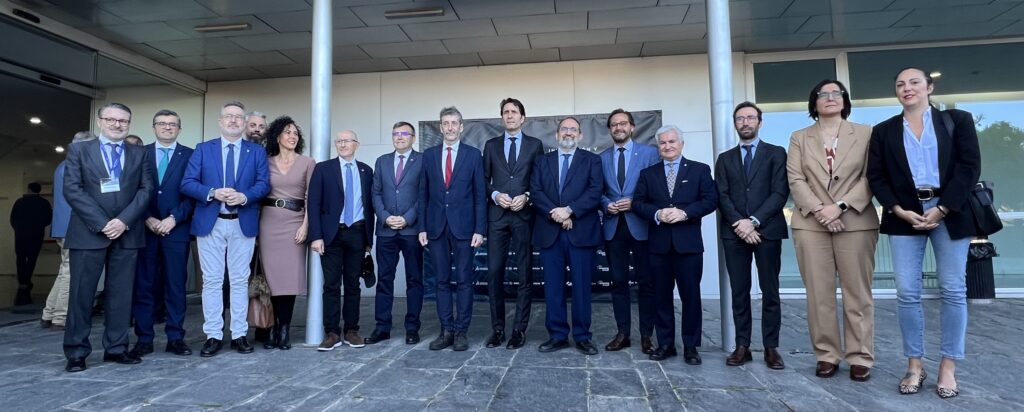More than 200 companies interested in the accelerator’s business opportunities
Posted on |

More than 200 companies, 90% from outside Granada, were interested in the business and work opportunities arising from the construction and subsequent operation of the particle accelerator of the IFMIF-DONES project during the 2nd R&DONES FORUM.
In the institutional session, which took place on 11 April, the companies learned about the needs that the project will have to cover in all areas in its different phases. In addition, they received information on the time horizon of the installation, the various financing options and the support for open investment in the project environment from both the central government and the Andalusian Regional Government. Representatives of the organising and collaborating institutions attended the conference opening, which took place at the Granada Chamber of Commerce.

The inauguration was attended by the director general of CDTI, José Moisés Martín Carretero; the director of IFMIF-DONES Spain, Ángel Ibarra; and, representing the Industry Office, Ignacio Cuerva, president of the Industry, Energy and Singular Projects Commission of the Granada Chamber of Commerce; and Erik Fernández, director general of INEUSTAR.
Behind the 2nd R+DONES Forum, promoted by these four entities through the Industry Office, is the objective of promoting a large business sector in Granada linked to the industry related to extensive scientific facilities, which will multiply the impact that the scientific facility itself will have on the province.
The organisers insisted that the accelerator’s impact on the province’s economy is already happening and that, in any case, it will not be necessary to wait a decade for the accelerator to become a reality for the opportunities to arise.
“El momento para las empresas es ahora, porque los concursos ya han empezado a convocarse; y además, no es una oportunidad, para un tipo de empresas, sino prácticamente para cualquiera”, apuntó Cuerva. “Hoy IFMIF-DONES no es un proyecto científico sino un proyecto empresarial llamado a ser decisivo en el desarrollo económico de Granada en las próximas décadas”, señaló el representante de Cámara Granada.
“Este proyecto no está tan lejos de la industria de Granada ni mucho menos y tienen que ser conscientes los empresarios y las empresas de Granada que pueden ser una parte muy importante de ello. Aquellas que vienen de fuera de Granada queremos que lo hagan desde aquí, creando puestos, creando sedes, creando espacios productivos en nuestra provincia”, añadió.
Por su parte, Ángel Ibarra destacó la importancia de eventos como el Foro I+DONES, que vinculen empresas y científicos y en el que estos sean “capaces de traducir las especificaciones y requisitos de lo que queremos hacer. Normalmente utilizamos palabras científicas complicadas y debemos traducirlas a lo que puede hacer cada una de las pequeñas empresas locales o nacionales, de forma que seamos capaces de entendernos”.
Desde ese punto de vista, Ibarra insistió en que la experiencia de proyectos internacionales como ITER en Francia o JET en Gran Bretaña demuestran el potencial efecto movilizador y el ”impacto tecnológico y socioeconómico muy importante” que tienen estas instalaciones en su entorno.
Por su parte, el director general del CDTI, José Moisés Martín, señaló que el objetivo fundamental del centro dependiente del Ministerio de Ciencia respecto a IFMIF-DONES es lograr el pleno desarrollo de la instalación, pero también que esta “genere industria de la Ciencia tanto en Andalucía, en Granada, como en el conjunto de España, a través de una buena colaboración público-privada que permita mantener un nivel de desarrollo tecnológico en el ámbito de las industrias de fusión nuclear, que son esenciales para el futuro del sector energético”.
“The time for companies is now because the tenders have already begun to be called; furthermore, it is not an opportunity for one type of company but for practically anyone,” Cuerva said. “Today, IFMIF-DONES is not a scientific project but a business project called to be decisive in the economic development of Granada in the coming decades,” said the representative of the Granada Chamber of Commerce.
“This project is not so far away from Granada’s industry, far from it, and the entrepreneurs and companies of Granada have to be aware that they can be a crucial part of it. Those that come from outside Granada, we want them to do so from here, creating jobs, creating headquarters, and creating productive spaces in our province,” he added.
For his part, Ángel Ibarra stressed the importance of events such as the R+DONES Forum, which link companies and scientists and in which the latter is “capable of translating the specifications and requirements of what we want to do. We normally use complicated scientific words, and we have to translate them into what each of the small local or national companies can do so that we can understand each other”.
From this point of view, Ibarra insisted that the experience of international projects such as ITER in France or JET in Great Britain demonstrate the potential mobilising effect and the “significant technological and socio-economic impact” these facilities have on their environment.
For his part, the director general of the CDTI, José Moisés Martín, pointed out that the main objective of the Ministry of Science’s centre with respect to IFMIF-DONES is to achieve the full development of the facility, but also for it to “generate a science industry both in Andalusia, in Granada, and in Spain as a whole, through good public-private collaboration that allows a level of technological development to be maintained in the field of nuclear fusion industries, which are essential for the future of the energy sector”.
In this sense, Martín recalled “the mechanisms of innovative public procurement as basic to “allow companies to offer their technology to the institution to develop new mechanisms, new tools that are useful for the full development of the accelerator”.
Finally, the general director of INEUSTAR, Erik Fernandez, said that the 50% higher attendance than last year at this second forum shows that creating the Industry Office – promoted by the Granada Chamber of Commerce and INEUSTAR – was necessary. “At the time, we said we needed powerful, capable companies ready to work. After a year of meetings and a year of work, we’ve seen that these things exist. And that it is a reality that the accelerator, already today, can be a driving project that will boost the economy of both Granada and Andalusia,” he said.
Entrepreneurial ecosystem
The Forum has served to energise the business ecosystem created around IFMIF-DONES. The representatives of the more than 200 participating companies took advantage of the conference to create synergies for future collaborations, as well as to learn about the challenges posed by the particle accelerator and how the different public administrations will contribute to its objectives.
Workshops
On the first day of the Forum, 10 April, several workshops were held. The project’s technical managers explained the main technological challenges faced by IFMIF-DONES. The sessions dealt with Cryomodule Technology, Remote Handling, Artificial Intelligence, and Construction.
The participating companies attended the workshops well. Representatives of the organizing and collaborating institutions closed the conference, which was held in the Carmen de los Mártires.
Female protagonism
The 2nd R+DONES Forum had a strong female protagonism. In addition to engineers from IFMIF-DONES, such as María Luque, institutional leaders such as Elena Gallego (Andalucía Trade), Ana Belén del Cerro (CDTI) and Nelia Bustamante (CDTI), as well as representatives from several companies and the director of DONES-Xcitech, Blanca Biel, also took part.
Special mention should be made of our Women in DONES (WiD) collective colleagues, who offered continuous support throughout the two days. Their active role has been fundamental to the forum’s successful development.

